When Ralph Nader announced his fourth bid for the US presidency on NBC in February 2004, shortly after Howard Dean’s insurgent Democratic campaign imploded, he described his goal as building a “second front” in the fight to defeat George W. Bush. “Can we tolerate four more years of Bush,” he asked rhetorically, answering with a no. In a June letter to contributors, he wrote, “No one wants to defeat George W. Bush more than I do."
Yet, the official reason he entered the race was John Kerry’s refusal to negotiate with him, agreeing to adopt some of Nader’s positions in exchange for a promise not to run. Nader spent much of that campaign drawing contrasts with both Bush and Kerry on health insurance, a living wage, global trade, and the Israel-Palestinian conflict. “Kerry chooses to stay the course with the corporate and military wing of the Democratic Party,” he charged.
Now 74 years old and running for the fifth time, he argues that if he doesn’t the Republican and Democratic candidates won’t move their platforms toward talking about his issues – corporate control, livable wages and consumer protection. But that didn’t happen in 2004. Instead, it turned Democrats into the electoral equivalent of abusive hallway monitors, waiting for any excuse to report minor infractions by a star student now classified as a political delinquent.
In the end, he didn’t get the chance to participate in the presidential debates and had no visible impact on the campaign. Even though he was on the ballot in 34 states, he received less than half a million votes, a mere 0.4 percent. Four years earlier, he got almost six times as many, close to three million votes.
There is no doubt that Nader has made enormous contributions as a consumer advocate, beginning with his 1965 book, Unsafe at Any Speed, which tackled automobile safety issues. Inspired by Nader, young activists joined him on subsequent projects, becoming known as "Nader's Raiders." Public Citizen, founded in 1971, grew into an effective monitoring group that helped to pass the Safe Water Drinking and Freedom of Information Acts. It also prompted the creation of the Occupational Safety and Health Administration, Environmental Protection Agency, and Consumer Product Safety Commission.
That said, his move into presidential politics has been far less effective. When he ran in both the GOP and Democratic New Hampshire primaries in 1992, he polled only 3,000 in each, out of a total of 350,000 votes cast. In 1996, as the Green Party candidate, he received 685,000 votes, or 0.8 percent. The 2000 race produced his best showing, but some blamed him for helping Bush win.
Asked recently by MSNBC's Tim Russert if his latest run could prevent a Democratic victory, Nader replied, "Not a chance. If the Democrats can’t landslide the Republicans this year, they ought to just wrap up, close down, and emerge in a different form." He’s probably right about his potential impact. But the real question is whether running will clarify anything, or instead help to discredit the positions he espouses if his vote is again disappointing. Jay Leno recently joked about his drawing power. “Obama spoke before 75,000 people at a rally in Oregon,” Leno noted. “75,000. That’s the equivalent of 75,000 Ralph Nader rallies.”
Nader and his supporters claim that he runs in order to get different views a hearing in the mainstream media. What views? The size of the defense budget, for example, and the need to use some of that money to fix domestic problems like health care, education and public works. Yet his four previous attempts to do this have failed, providing both the media and “mainstream” politicians with an excuse to claim that such an agenda has little popular support. It could even be argued that Nader’s presence allows the Democratic candidate to position him/herself between a Left agenda and the Right-wing extremism of the Republicans.
The larger reason for Nader’s campaigns, as he explains it, is to move the US toward a “diverse, multiple-choice, multiple-party democracy, the way they have in Western Europe and Canada." That’s why, although he sometimes acknowledges that a Democratic president would be somewhat different than a Republican, the basic thrust of all Nader campaigns has been that both big parties are essentially the same, their candidates just tweedledumb and tweedledumber.
Will his independent candidacy – especially if it disappoints expectations – set the stage for such a paradigm shift? The Electoral College process, restrictive ballot access rules, closed presidential debates, and government campaign funds make it virtually impossible for either an independent or a “third party” to mount a credible challenge. A Constitutional amendment – not a very likely development – would be just the beginning.
Candidates outside the two “major parties” can of course have an impact on the outcome. For example, they can deny a candidate the popular vote in enough states to influence the final electoral tally. That’s the rap on Nader’s 2000 campaign. But the best example is 1912, when former president Teddy Roosevelt received 27 percent as a third-party candidate. By splitting the Republican vote, he helped Democrat Woodrow Wilson become president. On the other hand, Ross Perot got 19 percent in 1992 and yet no one can prove his presence helped Bill Clinton or hurt George Bush.
At this point, Nader clearly can be classified as a perennial candidate, a club whose mascot is surely Harold Stassen, the Minnesota governor who ran nine times. At first, in 1948 and 1952, he was considered a serious contender. By 1992, however, he‘d become a source of late night TV jokes. The club also includes the Socialist Party’s Norman Thomas (six times), who did influence Roosevelt’s New Deal; Eugene V. Debs (five), whose 1920 run while in federal prison netted 913,664 votes, the most ever for a Socialist Party candidate; Prohibition Party candidate Early Dodge (six); Communist Party USA leader Gus Hall (four); Minnesota Senator Eugene McCarthy (five), whose effective 1968 campaign influenced Lyndon Johnson’s decision not to seek another term; and Lyndon LaRouche (eight), a political cult leader who also once campaigned from behind bars.
Nader is also sounding a bit cranky these days. At a recent campaign stop, he didn’t just downplay the value of computers and the Internet. He lectured his audience about good old days before the Information Age. Nader doesn't use Google; in fact, he doesn't have a computer. His means of communication is an Underwood typewriter. That might appeal to the 20 million households without Internet access, mostly people over 65 or with no education beyond high school. But since Nader gets almost no TV or print coverage, they’ll probably never find out.
How will candidate Nader be remembered? So far, he hasn’t achieved the impact of either Norman Thomas or Gene McCarthy. In 2008, he runs the risk of running behind Bob Barr, a former Republican running as the Libertarian candidate. A Zogby poll recently put them both around three and four percent, but the Election Day outcome could be considerably lower. The danger is that Nader may become another Stassen, or worse, the godfather of a Left-wing cult that persists in believing, despite all evidence to the contrary, a failed prophecy: You just have to keep running until the voters wake up and desert the big parties en masse.
It’s a tragic loss for the progressive movement. By keeping the focus on his analysis and projects rather than his candidacy, Nader could have become a formidable elder statesman, possibly even a member of some Democratic cabinet. Now he’ll be lucky to avoid being a punch line.
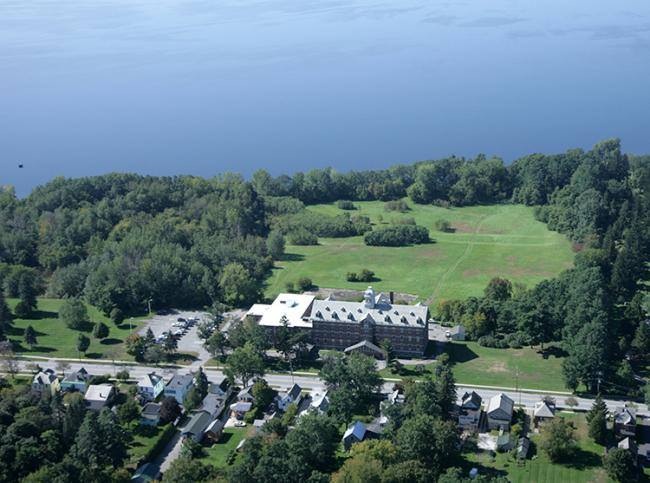


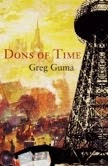
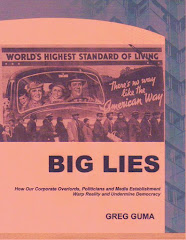





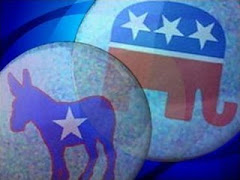
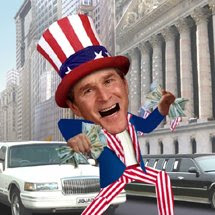











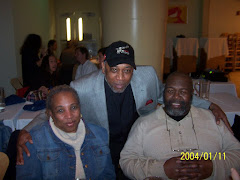







3 comments:
If you ever listen to Nader's response to accusations of ruining the 2000 election, or his continuous bids for the presidency, you'll realize that he isn't trying to make a reputation for himself. Ralph Nader doesn't care what you think of him or what joke Jay Leno cracked about him. The guy simply cares about our rights as Americans. That's why he can make such big accusations like wanting to impeach Bush/Cheney. Besides, the media doesn't help get Ralph's voice out there, but instead make him seem like some maniac. This is a guy with an amazing track record that has greatly improved our lives, and I think people should be happy he brings opposition to the big parties.
Nader was a factor in the Bush win over Gore in Florida in 2000.
Nader got nearly 100,000 votes there, about 200 times the margin by which Katherine Harris certified Bush as winning the state (543 votes over Gore).
The Nader/Green Party has other debating points: "a balanced analysis would take into account the following: (1) voters who were disenfranchised; (2) voting systems and procedures that failed; (3) the party-line United States Supreme Court vote declaring George W. Bush the winner; and (4) Democrats who voted for Bush or not at all."
source among others:(http://www.cagreens.org/alameda/city/0803myth/myth.html)
However, none of these other factors add up to the amount of votes received by Nader. So it is the Nader vote that, as one factor, that over-shadows the outcome.
I am a proponent of having more than 2 parties, because mathematically it would be much easier to determine a winner, and it wouldn't polarize the nation as much (there would be 2 groups of losers in each race). But then in 2004, the Democrat party pushed the line, "anyone but Bush", which seemed to be an open-minded suggestion, but really was about rejecting Kucinich and Nader. That strategy didn't work, because people are less motivated to vote "against" someone than they are in voting "for" someone. So the message didn't get the masses to turn out for Kerry (who didn't have a motivational message anyway--witness his helpless wimp-out in the famous "..Don't tase me bro'..." video- it's hard to believe he is a military vet - he didn't say a word to stop the abusive reaction by campus security officers to the student protester).
In the current campaign, Obama is someone people WANT to vote for, if not substantially on the platform, at least emotionally on the message of hope for a better day. That is what is bringing out the new voters and voters who have previously felt alienated by the traditional party lines.
It isn't a new political dynamic, just rare, as it was Clinton that last made this play in 1992, and Kennedy before that in 1960, and Roosevelt in 1932. Carter won in 76 because a bag of peanuts could have beaten Gerry Ford.
So we are seeing a mood and time that is rare in Democratic presidential race history.
Nader is a wonderful human, and he has every right to run for president, however, it was a shame that his turnout in Florida resulted in Bush, as his political efforts have always been, as YAMIN writes here, alruistic and humanistic.
Hi Greg--
Interesting article. Are you saying that one should not support Nader's candidacy because he hasn't a chance?
The point that you seem to pass over is that paradigm shifts don't happen overnight. There is something to be said for energizing your base supporters, and Nader still has quite a few of those, even if most will probably choose to cast their vote against McCain, and vote for Obama or Clinton, as I will. (Personally, I see little substantial difference between the two Democrats.) I have no problem whatsoever with someone choosing Nader or McKinney over a Democratic candidate, though it may have the illusion of futility, and will certainly be portrayed in such a way by the mainstream media. Taking such a stance is admirable, and can strength ones ideals.
To paraphrase Noam Chomsky, don't spend a lot of time on the election because the most important thing is developing grass roots activism. Nader's candidacy is more about activism than winning an election, and he deserves due credit, even now, for this commitment to real change, which most of the Democratic party, unfortunately, does not share. As for impact, far from discrediting the positions he espouses, I think his candidacy signals that a powerful constituency for change still waits, sleeping, on the fringes, and may warrant attention in the future.
If progressive left voters surrender their advocacy for change without a struggle, and support a compromise candidate carte blanche, then they will never get anywhere in the political system (assuming that it matters!), and they may even discourage their own idealism. The decision to hold a legal rally on the site of the Seabrook nuclear power plant in the 1980s (it was a non-consensual, overriding decision made by the coordinating committee of the Clamshell Aliance) swelled the anti-nuke participants by thousands, but ultimately discouraged the backbone of the movement which endorsed non-violent direct action, and had passed a resolution stating, "we will block construction at some point during the occupation." The decision to proceed in this fashion, abandoning the intention of the organization and overriding the democratic process in favor of greater, less committed outreach, probably destroyed the effectiveness of the movement.
Our commitment to progressive activism is more important than our vote for presidency. As Margaret Mead said, “Never doubt that a small group of thoughtful committed citizens can change the world, indeed it’s the only thing that ever has.”
As "guardians of power" (see David Cromwells/ David Edwards book of that name), the mainstream media will almost always lampoon Nader and his ilk, for that is its institutional function. But, in my mind and the mind of millions of others, Nader is not a punch line.
Post a Comment